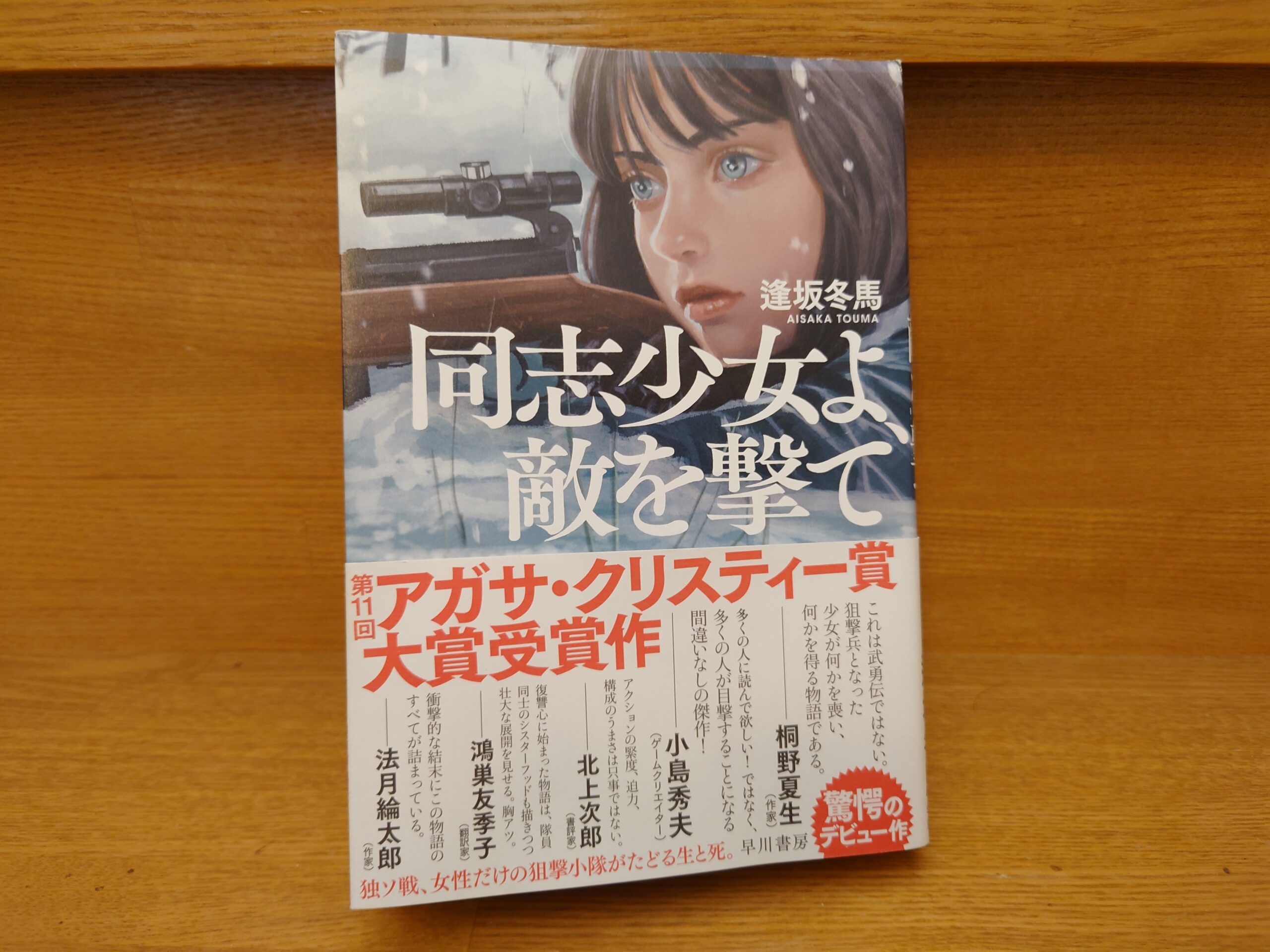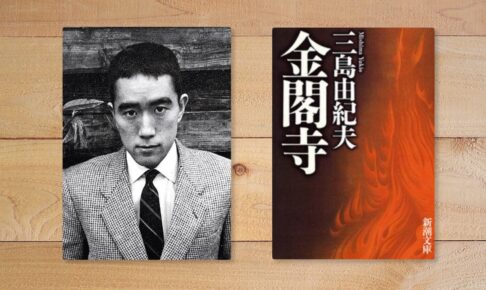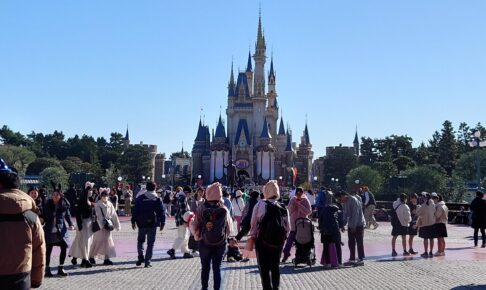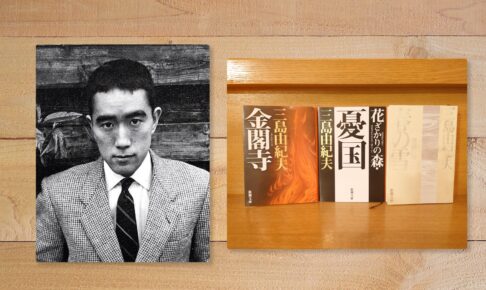Bookstore Award Winner! Fuyuma Osaka's "Comrade Girl, Shoot the Enemy" Synopsis and Impressions - A highly recommended topic about a sniper girl fighting the German-Soviet war, highly praised by MGS director Kojima!
I would like to introduce "Comrade Girl, Shoot the Enemy" by Fuyuma Osaka, published by Hayakawa Shobo in 2021.
Let's take a quick look at the book.
In 1942, as the war between Germany and the Soviet Union raged, the daily life of Serafima, a young girl living in a farming village near Moscow, was suddenly taken away from her. Her mother, Ekaterina, and other villagers were slaughtered by German troops who swooped down on them. Serafima is about to be shot herself when she is saved by Irina, a female soldier in the Red Army. Asked if she wants to fight or die, she decides to become a first-class sniper at the training school where Irina serves as an instructor. She wants to take revenge on the German sniper who shot her mother and Irina who burned her mother's body. Serafima trains with other female snipers who have also mourned their families and chosen to fight, and eventually finds herself on the front lines in Stalingrad, a decisive turning point in the war between Germany and the Soviet Union. After many deaths, she discovers the "real enemy".
AmazonProducts Page.
This work has been a topic of conversation on Twitter and other social networking sites.
The book, "Comrade Girl, Shoot the Enemy," by Fuyuma Osaka, has been nominated for the 2022 Honya Taisho (Bookstore Grand Prize)! Set in the war between Germany and the Soviet Union, this work depicts the life and death of an all-female Red Army sniper platoon. Immediately after its publication, we have received a lot of positive feedback and support. Thank you very much. We are planning to expand the book with the new bandage shown in the image.# Comrade Girl, shoot the enemy. pic.twitter.com/rD7TkOGgxV
- Hayakawa Shobo Official (@Hayakawashobo) January 20, 2022
I first became aware of this work through a timeline that flowed through social networking sites.
"Comrade girl, shoot the enemy."
The title is quite provocative, but this cover illustration also has an impact.
I have also been curious about it for a while, but have not been able to get my hands on it.
But the director of the Metal Gear series, Hideo Kojima, who has also been featured on this blog,
I hope many people will read this book! Not just a masterpiece, but a definite masterpiece that many will witness!
Hayakawa Shobo, Fuyuma Osaka, "Comrade Girl, Shoot the Enemy" Obi
I bought this book because I saw that he was raving about it and I really wanted to read it.
Now, how was this work that Director Kojima praised so highly?
Conclusion.
Indeed,'I hope many will read it! Not, but a definite masterpiece that many will witness."It was!
This is interesting!
Anyway, I'll let you read it!
The storyline and psychological descriptions are very skillful and draw you into the story more and more. The immersion in reading is amazing.
It is a large work coming in at over 450 pages, but I read it in no time at all. As expected, I could not read the book in one sitting due to time constraints, but when I stopped, I was itching to read the rest of the book as soon as possible. It is such a fascinating storyline.
Above all, it is a story that carefully incorporates the tragedy of the German-Soviet war.
At the end of the book is a list of books that the author consulted.
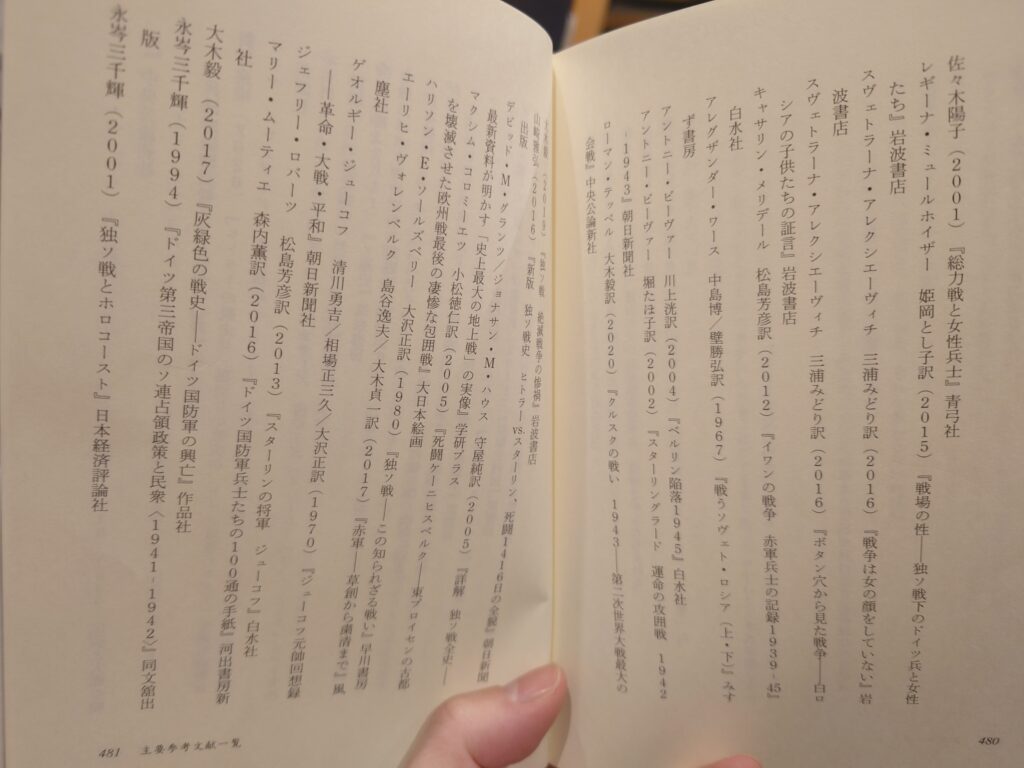
I introduced a book on this blog last year that contains the history of the German-Soviet war, and in "Comrade Girl, Shoot the Enemy," Alexievich's'War has no woman's face.'and Catherine Merridale'sIvan's War: A Record of a Red Army Soldier, 1939-45."The influence of the
The "reality of war, which demonizes humans to no end," as told in the two books above, is deeply dropped in "Comrade Girl, Shoot the Enemy". I was surprised by this work, which tells these stories so exquisitely in an original story. The author says that this is her debut work. I am envious of the author's writing ability to express what she has learned in her debut work while incorporating it into her story.
Comrade Girl, Shoot Your Enemy is the winner of the 11th Agatha Christie Award. I picked up the book after hearing the words of MGS director Kojima, and it is a masterpiece that lives up to his praise. I highly recommend this work.
I sincerely hope that this work will be a gateway to learning about the German-Soviet war. I was previously,The reason why we Japanese dare to study the Russo-German War now is that history repeats itself in different forms..."I stated the following in an article called
When I think of World War II, I unconsciously associate it with the Pacific War. I cannot help but think of all the wars that Japan fought in. The disastrous battles in Asia, the crushing of the enemy in the Pacific, air raids on the mainland, the Battle of Okinawa, the dropping of the atomic bombs, the Soviet invasion...
However, as the name "World War II" suggests, this was a global war. And the main battlefield was Europe. However, this fact is not often brought up in our consciousness. I was surprised to learn about the war as part of my study of Stalin and the history of the Soviet Union. I was surprised to realize that I knew so little about such a huge war, even though I thought I did.
Hitler invaded Poland, followed by the Holocaust, and finally the war ended when Hitler committed suicide after being defeated by the Allied forces.
Middle and high school textbooks do not go into detail about this history. I chose Japanese history in high school, so I do not know how much is written in high school world history textbooks, but at least in Japanese history textbooks, there was almost no description of the European front in World War II.
In other words, people like me who choose Japanese history do not have much opportunity to know the detailed flow of World War II. If you want to know, you have to do your own research. While in college, you may have time to study, but if you want to learn about World War II again after entering the workforce, it is still difficult both in terms of time and physical strength.
We are somewhat familiar with the Pacific War that Japan fought through the media, as various dramas, movies, and documentaries have been made about it.
However, this "somewhat knowing" is tricky, and I think that because of this, people may lose interest in World War II as a whole. If they knew little about the Pacific War that Japan fought in, then they would be more interested in "what was that war all about? And in the process, you will be forced to know about the entire World War II process.
However, because we "know something about it," our learning stops there. We stop at the images of the Pacific War that we have seen in TV dramas, movies, and documentaries.
Japan as a victim. Japan as a victim of the atomic bombings. Japanese people suffering from the war. A life deprived of peace...
We are so emotionally attached to our own Japan. We tend to stand on the Japanese side of things. No matter how careful we are, we cannot remain neutral toward Japan. We cannot escape from our feelings, good or bad.
That is why it is significant to study the German-Soviet war.
The war between Germany and the Soviet Union, which was fought on an unimaginable scale, puts the true nature of war in front of us like nothing else. It is possible to learn about the history of the war from a third-party perspective. Of course, it is impossible to look at the war with a completely neutral eye. But it is possible to learn about the war from a much more detached perspective than Japan, which was a party to the war.
Why did war happen? How does war change people? The Russo-German War provides an amazing insight into why genocide occurs. I myself was very surprised to learn about the Russo-German War and felt fear of war. It is a different kind of fear than I had felt before. It is not the "victim fear" that I have seen in dramas, movies, and documentaries, but the fear of war itself.
How war destroys humanity.
How does a person turn into a perpetrator?
The fear that once people are embedded in the system that drives them to war, they can no longer resist.
Extreme conditions in which the ethics of peacetime completely collapse.
The horrific ravages of the war between Germany and the Soviet Union show us these things clearly.
Of course, we do not mean to downplay the suffering of the people in the Pacific War.
However, by daring to learn about the German-Soviet war away from Japan, we can learn more objectively about the question of what war is all about.
What will emerge from studying the question, "What is the true nature of war?" through the German-Soviet war?
The questions are: "What was the war in Japan?
What was the Pacific War that Japan fought in? Why did the war happen? What did Japan do during the war?
After learning about the war between Germany and the Soviet Union, if you think about Japan's war again, you will probably see something different from what you have seen before.
The reason why we Japanese dare to study the Russo-German War now is that history repeats itself in different forms...".
Fuyuma Osaka's "Comrade Girl, Shoot the Enemy" is probably the best gateway to learning about the German-Soviet war. This work is just interesting! It makes you read! It is a sensation that draws you into the story at once. It is a story that pulls you into the story at once, and at the same time, it gouges out the tragic reality and psychological aspects of the war.
I would highly recommend this work.
The following related article also includes recommended books on the German-Soviet War for those interested.
The above is a summary and impression of Fuyuma Osaka's "Comrade Girl, Shoot the Enemy" - a recommended novel that won the Honya Taisho Award! A topical novel about a sniper girl fighting the war between Germany and the Soviet Union!" This is the "Review of "Comrade Girl, Shoot the Enemy" by Fuyuma Osaka!
*April 6, 2022 addition.
Comrade Girl, Shoot the Enemy," by Fuyuma Osaka, won the 2022 Honya Taisho Award!
It means immeasurably that this book has won the Grand Prize amidst the turmoil of the Russian-Ukrainian war.
I hope that many people will pick up a copy. I strongly recommend this work!
Next Article.
Click here to read the previous article.
Related Articles












